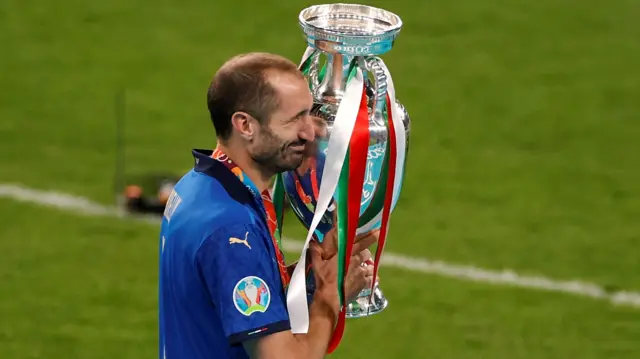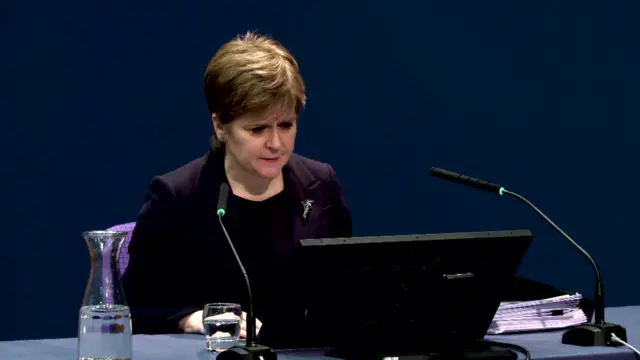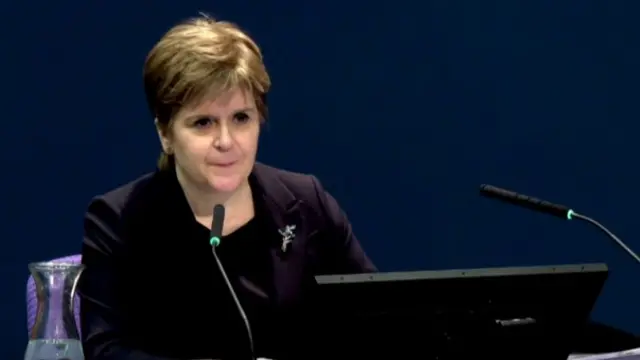Sturgeon's evidence to the UK Covid Inquiry: The headlinespublished at 17:42 GMT 31 January 2024
We've just had a mammoth evidence session at the UK Covid Inquiry, with Scotland's former First Minister Nicola Sturgeon. Here's a recap of the headlines from today's session:
- Nicola Sturgeon told the Covid inquiry that one of her chief regrets was not locking down two weeks earlier at the start of the pandemic
- A tearful Sturgeon admitted that a large part of her wished she hadn't actually been Scotland's first minister when the pandemic struck
- She insisted none of the decisions she made in the pandemic were based on political considerations
- The former FM denied she made decisions on instinct and with a small band of trusted advisers
- Sturgeon also denied that there was an approach of secrecy during Covid and said that an early lack of testing did not reflect a lack of urgency felt by the government
Emotional Sturgeon on being FM in pandemic
- Sturgeon said that during some of the early days of the pandemic, she felt "fear" and at times was "overwhelmed by the scale" of what she had to deal with
- She also said Boris Johnson was the wrong person "full stop" to be prime minister of the UK
- In the morning session, the inquiry focused on the way Sturgeon and her cabinet used WhatsApp and other messaging platforms to conduct government business. Sturgeon insisted messaging was never a part of official government decision-making
- She admitted deleting her messages but said everything of relevance was available on the public record
- She also told the hearing that she thought "every day" about some of the decisions she'd had to make during the pandemic
Thank you for joining us today. We'll be back tomorrow morning at 10:00. The editors today were Paul McLaren, Nadia Ragozhina, Sam Hancock and Graeme Esson. The writers were Craig Hutchison, Ashleigh Keenan-Bryce, Ali Abbas Ahmadi, Gabriela Pomeroy, Ece Goksedef and Mattea Bubalo.






